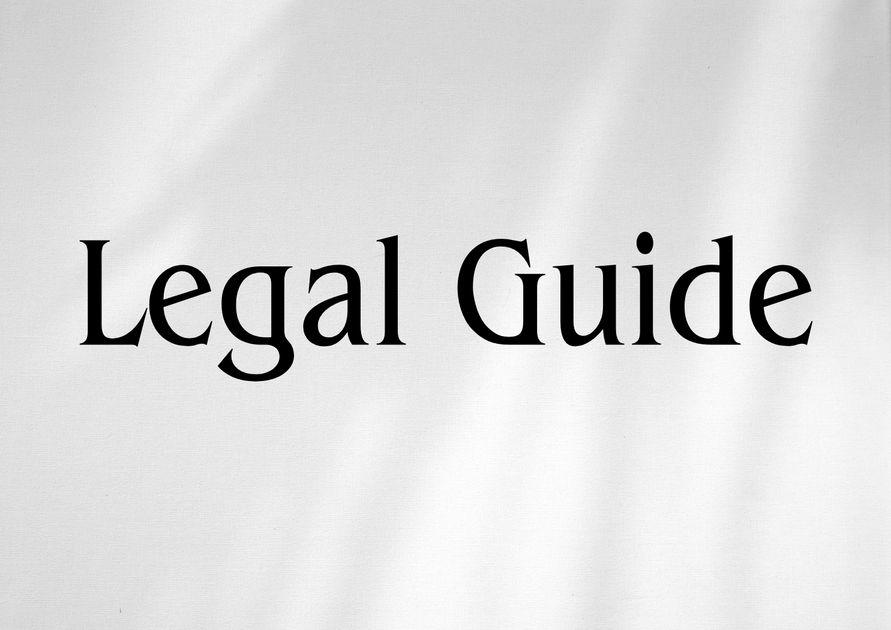Introduction: Navigating Arbitration in the Evolving UAE Legal Landscape
Dispute resolution sits at the heart of commercial certainty and international trust. As the UAE cements its status as a global business hub, leading organizations are increasingly turning to arbitration for efficient, confidential, and enforceable resolution of complex business disputes. The Dubai International Financial Centre–London Court of International Arbitration (DIFC-LCIA) Arbitration Centre has played – and continues to play – a pivotal role in this landscape. With recent developments and the 2021 merger into the Dubai International Arbitration Centre (DIAC) under Decree No. 34 of 2021, profound questions arise regarding jurisdiction, enforceability, and strategic choices for businesses across the UAE.
This article provides a comprehensive analysis of what organizations must know about the DIFC-LCIA, its legacy, the transition to DIAC, and the current arbitration framework as of 2025. By dissecting statutory instruments such as Federal Law No. 6 of 2018 on Arbitration and Dubai Decree No. 34 of 2021, we offer practical guidance for executives, in-house lawyers, HR managers, and UAE-based businesses striving to remain compliant, mitigate risk, and optimize dispute resolution strategies.
Table of Contents
- Background: What Was the DIFC-LCIA Arbitration Centre?
- Governing Laws and Key Legal Developments
- Transition to DIAC: Implications of Dubai Decree No. 34 of 2021
- Enforceability and Jurisdiction: What Do These Changes Mean?
- Comparison Table: Old vs. New Arbitration Landscape
- Practical Guidance for UAE-Based Businesses
- Risks of Non-Compliance and Efficient Compliance Strategies
- Hypothetical Scenarios and Case Studies
- Best Practices for Proactive Arbitration Management
- Conclusion: Charting the Future of Arbitration in the UAE
Background: What Was the DIFC-LCIA Arbitration Centre?
A Legacy of International Arbitration Excellence
The DIFC-LCIA Arbitration Centre, inaugurated in 2008 as a partnership between the DIFC and the LCIA, rapidly became a preferred seat for multi-jurisdictional disputes in the GCC. With independent arbitration rules and a globally respected panel of arbitrators, it offered neutrality, procedural flexibility, and compatibility with international enforcement conventions—the New York Convention notably among them.
This centre allowed businesses to leverage the English-language DIFC laws, robust institutional support, and the strategic location of Dubai. It was particularly favored for disputes involving cross-border transactions, construction contracts, joint ventures, and financial services.
Governing Laws and Key Legal Developments
Federal Law No. 6 of 2018 on Arbitration
Federal Law No. 6 of 2018 (the “UAE Arbitration Law”) modernized the UAE’s arbitration framework, bringing it into close alignment with the UNCITRAL Model Law, thus establishing a comprehensive legal basis for both domestic and international arbitration conducted in the UAE. Key features include party autonomy, enforceability of awards, and clear procedures for arbitration clauses and proceedings. Refer to: UAE Ministry of Justice – Federal Laws.
Dubai Decree No. 34 of 2021 and Cabinet Resolution No. 65 of 2021
Decree No. 34 of 2021 restructured arbitration in Dubai by dissolving the DIFC-LCIA Arbitration Centre and the Emirates Maritime Arbitration Centre (EMAC) and transferring their assets, operations, and mandates to the Dubai International Arbitration Centre (DIAC). Cabinet Resolution No. 65 of 2021 provides implementing guidance. The reforms aim to unify and strengthen Dubai’s position as a global arbitration destination.
Official Source: Federal Legal Gazette
Key Provisions Impacting Businesses
- Enhanced recognition and enforcement of arbitral awards across the UAE.
- A single, unified DIAC institution handling all legacy DIFC-LCIA and EMAC cases.
- New, revised DIAC Rules effective as of March 2022, with procedural innovations for expedited arbitrations, virtual hearings, and emergency arbitrators.
Transition to DIAC: Implications of Dubai Decree No. 34 of 2021
Understanding the Transition Framework
Decree No. 34 of 2021 mandated the closure of the DIFC-LCIA Arbitration Centre. All arbitration cases previously administered by that institution have since been transferred to DIAC, which became responsible for their supervision and completion, unless otherwise agreed by the parties. DIAC’s updated Arbitration Rules (2022) now govern these proceedings, unless the parties expressly stipulate adoption of alternative rules.
Continuity and Legal Safeguards
Affected parties need not fear abrogation of earlier rights or danger of unenforceability:
- Arbitration agreements naming the DIFC-LCIA are, according to Article 6 of the Decree, deemed valid and interpreted as referring to DIAC.
- DIAC, via its Supervisory Board and new rules, strives to respect party autonomy while facilitating continuity, including appointment of arbitrators, procedural timetables, and language of proceedings.
Proactive Business Considerations
It is prudent for businesses with legacy DIFC-LCIA clauses to review their contracts and, where appropriate, execute formal addenda to clarify the seat, applicable rules, and the administering institution under the new regime. Legal counsel’s input is invaluable here to manage risk and prevent post-award challenges.
Enforceability and Jurisdiction: What Do These Changes Mean?
Key Jurisdictional Highlights
DIFC remains a favored seat due to its status as a common law jurisdiction, its independent courts, and its reputation for neutrality. Even under DIAC, parties can still designate the DIFC as their arbitral seat—vital for cross-border finance and construction contracts.
Awards rendered under the DIAC Rules seated in the DIFC benefit from straightforward recognition and enforcement both within Dubai and internationally (via the New York Convention 1958, ratified by the UAE under Federal Decree Law No. 43 of 2006).
However, careful drafting is essential. Diac’s rules, though modern, are not a carbon copy of the previous DIFC-LCIA set, and inadvertent procedural pitfalls may arise—especially concerning arbitrator appointment and institutional interventions.
Dual Court System: DIFC vs. Dubai Courts
One of arbitration’s chief commercial attractions in the UAE remains the possibility of choosing between the DIFC Courts (offering English-language proceedings and international precedent) and the Dubai Courts (offering Arabic-language proceedings rooted in UAE civil law tradition). Understanding the interface between these courts—especially regarding supervisory powers, challenge and enforcement of awards, and interim relief—is crucial for effective risk management.
Comparison Table: Old vs. New Arbitration Landscape
| Feature | DIFC-LCIA (pre-2021) | Post-Decree No. 34 (DIAC, 2022 onwards) |
|---|---|---|
| Administering Institution | DIFC-LCIA Arbitration Centre | Dubai International Arbitration Centre (DIAC) |
| Governing Arbitration Rules | DIFC-LCIA Rules (2016) | DIAC Rules (2022) |
| Seat of Arbitration | Typically DIFC (common law) | Option to select DIFC, onshore Dubai, or other seats |
| Transitional Arrangements | Cases fully administered by DIFC-LCIA | Cases transferred to DIAC unless all parties agree otherwise |
| Recognition and Enforcement | Enforceable under New York Convention | Enforceable under New York Convention; awards seated in DIFC enjoy robust recognition process |
| Procedural Flexibility | High, with LCIA influence | Enhanced, with new DIAC emergency arbitrator and virtual hearing options |
Visual suggestion: Insert process flow diagram mapping a case’s lifecycle under the DIAC 2022 Rules to demonstrate practical steps and touchpoints for businesses.
Alt Text: “Arbitration process flow under DIAC 2022 rules, showing filing, tribunal appointment, hearings, and award issuance.”
Caption: “Streamlined dispute resolution journey under the latest DIAC arbitration framework.”
Practical Guidance for UAE-Based Businesses
Contractual Drafting and Arbitration Clause Review
- Audit Existing Contracts: Businesses should identify and review all agreements with DIFC-LCIA arbitration clauses, assessing potential need for amendments to refer to DIAC and clarify seat, language, and rules.
- Future Dispute Provisions: For all new contracts, explicit reference should be made to the updated DIAC Rules, desired seat (e.g., DIFC or Dubai), and mechanism for appointing arbitrators. Consideration should be given to electronic hearing and expedited procedures now available.
- Legal Consultation: Engaging specialized UAE legal counsel is vital to ensure compliance and preempt enforceability challenges.
Internal Protocols and Dispute Management
- Update internal protocols to align with latest DIAC procedural rules, especially for multinational businesses or businesses in regulated sectors (finance, construction, tech).
- Train key staff and HR managers to recognize situations likely to invoke arbitration, ensuring timely notification and preservation of evidence.
- Maintain accessible, well-documented records for all cross-border transactions to support arbitrations if needed.
Risks of Non-Compliance and Efficient Compliance Strategies
Risks Stemming from Non-Compliance
- Invalid Arbitration Clauses: Failure to update legacy DIFC-LCIA clauses may result in procedural disputes, increased costs, or non-enforceable awards.
- Jurisdictional Challenges: Ambiguous seat or institution reference can spur costly litigation over arbitral seat or supervisory court authority.
- Procedural Pitfalls: Unfamiliarity with new DIAC procedures may result in missed deadlines, defective filings, or lost tactical advantages.
- Reputational Harm: High-stakes disputes can expose businesses to adverse publicity and loss of counterpart trust if arbitration is mishandled.
Compliance Checklist for UAE Businesses
| Checklist Item | Action |
|---|---|
| Review legacy arbitration clauses | Conduct legal audit and update as needed |
| Set dispute management protocols | Align with DIAC 2022 Rules and train teams |
| Document seat and governing rules in contracts | Include explicit DIAC references and choice of law |
| Legal counsel involvement | Engage experts in UAE arbitration |
| Monitor legal updates | Stay abreast of regulatory shifts via MOJ and Federal Legal Gazette |
Hypothetical Scenarios and Case Studies
Scenario 1: Construction Joint Venture, DIFC-LCIA Clause, 2020
A leading UAE contractor enters a joint venture with a UK engineering firm. Their 2020 agreement included a DIFC-LCIA arbitration clause. In 2023, a dispute arises over project delays. The contractor commences arbitration, but is informed the dispute is now under DIAC per Decree No. 34 of 2021. By failing to update the dispute clause, the parties face procedural uncertainties around applicable rules and tribunal formation, incurring additional legal costs and delays. With timely legal review and amendment, these risks could have been easily managed.
Scenario 2: Financial Services Dispute, DIAC-Designated Seat
A regional fintech startup enters a licensing arrangement with a global bank, selecting DIAC Rules (2022) and DIFC as the seat. In 2024, a shareholder dispute is swiftly referred to arbitration. Thanks to clear contractual wording, parties benefit from expedited procedures and enforceability under both UAE and international law, minimizing disruption and regulatory scrutiny.
Best Practices for Proactive Arbitration Management
- Regular Contract Review: Establish quarterly or semi-annual contract checks to ensure all dispute resolution clauses remain current under UAE law 2025 updates.
- Customized Training for Key Employees: HR, legal, and commercial management should undergo annual training on arbitration best practices and recent developments.
- Institutional Engagement: Maintain relationships with DIAC and monitor official updates on arbitral procedures and policies.
- Legal Risk Mapping: Map out business touchpoints exposed to arbitration risks, prioritizing sectors with cross-border or high-value contracts.
- Early Engagement with Counsel: When disputes loom, consult UAE-qualified arbitration specialists early to shape strategy and preserve evidentiary rights.
Conclusion: Charting the Future of Arbitration in the UAE
The dissolution of the DIFC-LCIA Arbitration Centre and the rise of DIAC as the unified Dubai arbitration institution mark a major turning point for the UAE’s dispute resolution framework. While the transition introduces new administrative practices and rules, it also offers businesses unprecedented clarity, procedural flexibility, and global enforceability. As the legal environment in the UAE continues to modernize in line with the vision of Vision 2030, robust contract management and continuous legal vigilance are paramount for every organization.
To navigate this evolving landscape, businesses must proactively update contractual provisions, align internal processes, and seek trusted legal counsel. By harnessing the strengths of DIAC and keeping abreast of UAE law 2025 updates, organizations can reduce risks, safeguard reputations, and fortify their positions in the global marketplace. Legal compliance is now not only a defensive imperative but a strategic enabler for business growth and cross-border partnerships in the UAE and beyond.




